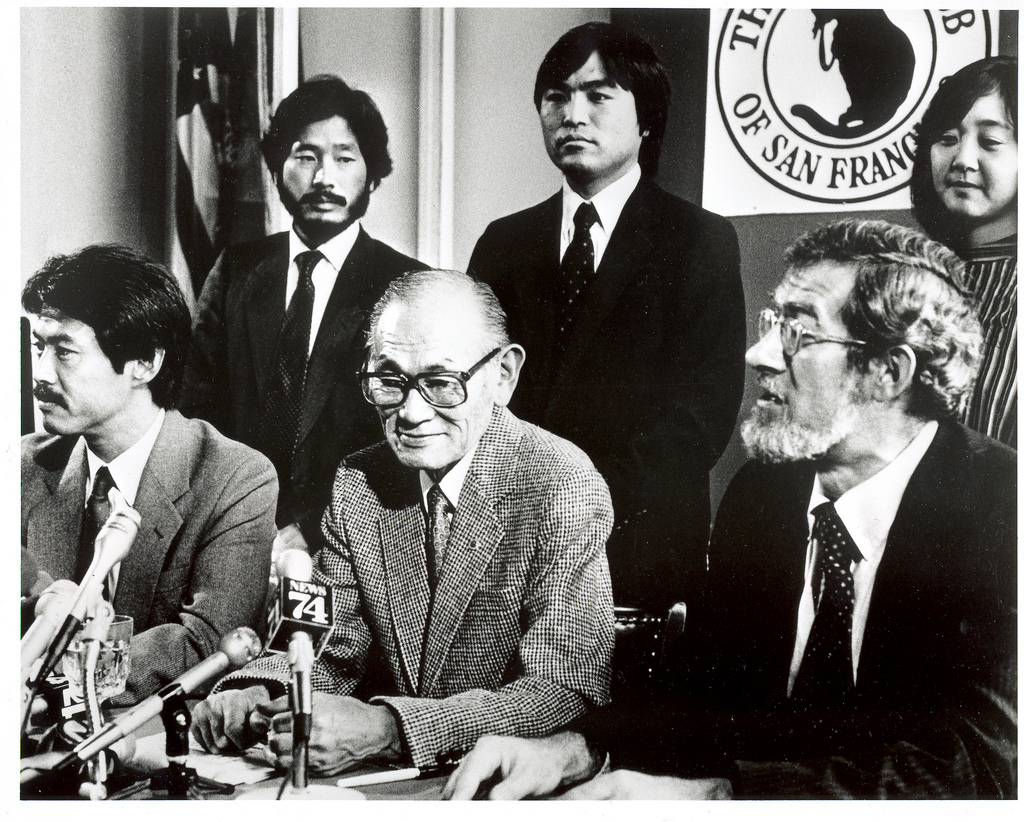Dale Minami will receive this year's ABA Medal for his civil rights work

Dale Minami. Photo from Minami Tamaki.
Dale Minami has a few stories about Fred Korematsu. But his favorite is about Korematsu refusing a pardon.
Korematsu was convicted in 1942 of refusing to report for the Japanese American internment and lost an appeal to the U.S. Supreme Court. Forty years later, law and history professor Peter Irons discovered that the government had intentionally suppressed its own reports saying Japanese Americans were not a threat to the United States—while telling the Supreme Court the opposite. Irons took that evidence to a team of lawyers including Minami, who petitioned for a writ overturning Korematsu’s conviction.
Minami says the federal government didn’t know what to do with a case so old and with such clear evidence of misconduct. So the Justice Department offered a pardon—but Korematsu and his wife, Kathryn Korematsu, rejected it because it would have kept the guilty finding intact. Next, the government offered a “pardon for innocence,” a type of clemency that DOJ lawyers admitted under questioning that they’d simply made up.
“Fred and Kathryn indignantly stated, almost in unison, that we don’t want to accept the pardon. If anything, we should pardon the government,” recalls Minami, a personal injury lawyer in the San Francisco Bay Area. “And that strength of character and strength of righteousness really inspired us to continue.”
They did continue, and in 1984, a district judge overturned Korematsu’s conviction. Parallel actions overturned the convictions of two other Japanese Americans who defied the internment, Gordon Hirabayashi and Minoru Yasui (an attorney).
For Minami, it was perhaps the most visible part of a career balancing building a business with his commitment to advancing the rights of Asian Pacific Americans. In recognition of that work, Minami will be presented with the ABA Medal, the ABA’s highest honor, at the 2019 annual meeting in San Francisco.
“Dale Minami has devoted a lifetime to breaking down stereotypes and advocating for Asian Pacific Americans,” ABA President Bob Carlson said in an ABA press release. “His work in overturning Korematsu is legal legend, but it is just one of many instances in his career where he has fought for the protection of the rights of people who have been discriminated against.”

Dale Minami (bottom row, from left), Fred Korematsu and Peter Irons at a press conference in the 1980s about Korematsu’s coram nobis petition with the federal courts. Photo courtesy of the family of Fred T. Korematsu via Wikimedia Commons.
That career also includes helping found the Asian Law Caucus, the first public interest law firm for low-income Asian Pacific Americans, and Asian Pacific American bar groups in the Bay Area and beyond, and a series of pro bono lawsuits vindicating the rights of Asian Americans and Pacific Islanders. Among those cases was a class action on behalf of Blue Shield of California workers of Filipino descent, who Minami says were not only bypassed for better jobs, but asked to train their replacements. It was the first class action employment lawsuit both by and for Asian Americans.
Another lawsuit Minami handled pro bono alleged unfair denial of tenure at the University of California at Los Angeles to Don Nakanishi, whose social sciences work on Asian American communities was deemed “irrelevant” by the tenure committee. After three appeals, Nakanishi was granted tenure and went on to found UCLA’s Asian American Studies Center.
During all that time, Minami says, he balanced his passion for advancing Asian American civil rights with building a business at Minami Tamaki, the San Francisco law firm he co-founded in the mid-1970s.
“I think one of the things that I’m most proud of is having a minority firm survive for 44 years, and with a sense of values, sense of principles,” he says. “We were tested many times. … But over the years, I think, on balance, we’ve been able both to do good and do well.”
Minami, a past recipient of the ABA’s Thurgood Marshall Award and Spirit of Excellence Award, will receive the ABA Medal during the ABA’s General Assembly at the annual meeting. The ceremony will be held on Saturday, Aug. 10, at the San Francisco Marriott Marquis.
The ABA Medal honors attorneys who have “rendered conspicuous service to the cause of American jurisprudence.” Past recipients include Supreme Court Justices Ruth Bader Ginsburg, Thurgood Marshall, William Brennan and Sandra Day O’Connor; former ABA Presidents Dennis Archer and Roberta Cooper Ramo; civil rights attorney Bryan Stevenson; law professor and Jesuit priest Robert Drinan; professor John Feeran, who helped draft the 25th Amendment; and the litigation team of Theodore Olson and David Boies.



